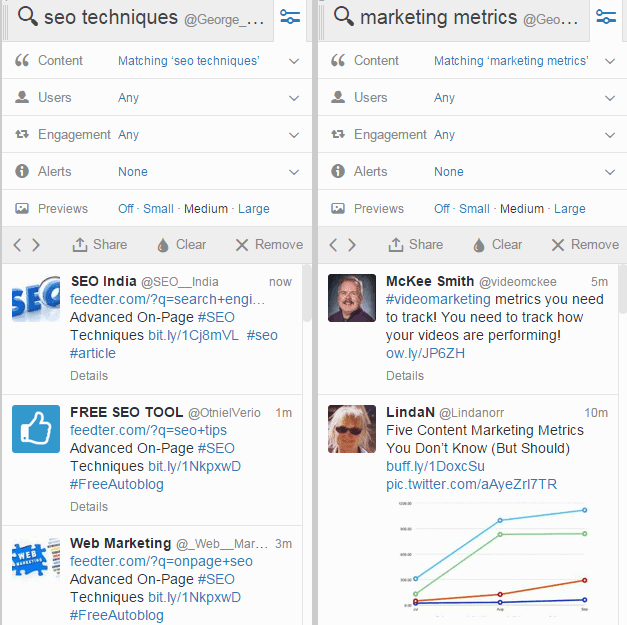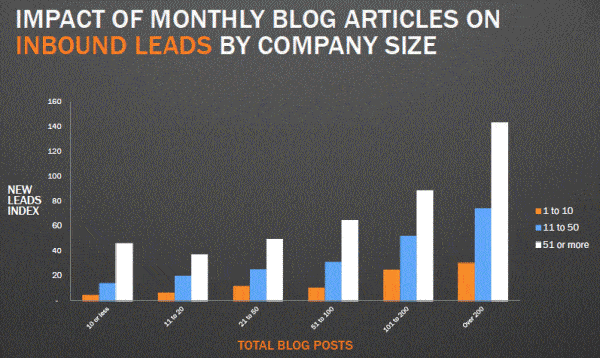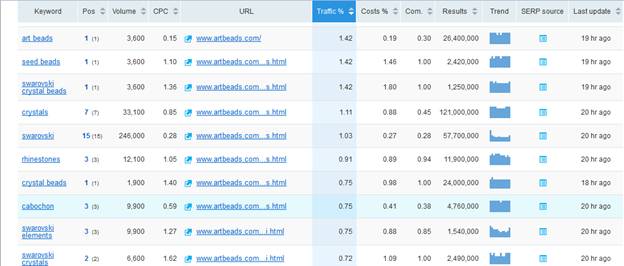The online community has a wide market which if tapped into can generate good sales for your business. Blogging is one sure way of raking in sales.
Sites like CrazyEgg and ConversionXL run their entire business based on the traffic and mentions generated from their blogs.
For Marcus Sheridan, blogging resulted in over 2 million dollars of sales. Yes, blogging can make you money.
A blog does have more advantages.
1. Blogging gives you wide coverage
Blogs are useful in drawing the attention of a wide range of customers. The online community is a very big one, and getting information to even a fraction of it is a step in the right direction.
2. A blog brings diversity
A blog doesn’t have to just advertise your products and your company per se. It can be used as an educative platform as well. You benefit when your customers make this space their point of reference. What’s more, this information becomes available to them for a long period of time.
3. Blogging builds interactivity
Blogs help build trust and confidence of your customers. You stay connected by responding to inquiries, taking suggestions and giving feedback. You then are able to improve your product and stay ahead of your competitors.
According to GrooveHq, the spend is $1600 on crafting a single blog post.
The money is well spent. Each post brings them subscribers. Even though that doesn’t exactly mean sales, 10% of those signups become Groovehq’s trial users within a month.
While only 5% of non-subscribers become trial users, 18% of trial users become paid users.
That being said, searching on Google for the term “Blogging is dead” gives me 1,96,00,000 results in .22 seconds.
According to Technorati’s state of blogosphere report, there are over 8 million blogs worldwide but only 11% of bloggers make a full time income from their blogs.
According to content marketing wizard, Shane Snow, the reason why blogging doesn’t generate an ROI is because writers are afraid of solid hard data.
Along with the above reason goes the idea that, if you build it, they will come. It isn’t necessarily so.
So today I am here to give you the best possible ways to generate sales from your blog.
1.Identify the target audience for your blog
For any business to stay ahead, it needs to identify its target audience. Identifying your target audience in this case helps determine the relevant topics to blog about. If your content is irrelevant, then it will not be useful to anyone, least of all your customers.
Ask yourself: Who are your customers?
Is it the corporate woman who has access to the Internet from 9am to 5pm on weekdays? Is it the housewife who manages to go online in the evening after tucking away her children in bed? Is it both? Is it the college student who likes to go online over the weekend when he has no classes to attend? Find out more about your target audience: Does your audience consist of mostly males or females? Having the relevant information about your audience enables you to tailor your posts in such a way that it engages them.
You can identify your target audience by:
- Researching the market to find out exactly who buys your product. This is achievable by developing customer profiles to determine the age, sex, professions and any such information that you might deem necessary. There are many ways to do this but one of the better ways is to take your competitor’s fan page on Facebook and see what goes on there. Who interacts the most? It’s possible to run a facebook ad campaign targeting those very people using the “custom audiences” feature.
- Find where your customers are; which social sites they frequent and what tools of communication they use. This will inform you whether you need to use mobile-friendly apps for your website to serve those that connect to the Internet using their mobile phones, or not.
TweetDeck can come in handy to monitor customer conversations happening around your industry.
Here I am monitoring conversations on SEO and marketing.
2. Blog frequently on your business blog
Frequent blogging means more traffic to your website. More traffic to your website means a bigger audience. A bigger audience means a wider coverage which eventually translates to buyers, to good sales. Frequent blogging also enables your business to cover a wide range of topics about your product which is helpful to your customers.
According to Hubspot, those companies that increase blogging from 3-5X/month to 6-8X/month almost double their leads.
A caveat is always issued concerning the frequency of posting on your blog vis-a-vis the content. The frequency of posting should never compromise on the quality of your blog’s content. Whereas posting daily is fine if you manage to keep the content fresh and relevant, it is better to play it safe and post weekly or bi-weekly if the alternative is to post poor content on a daily basis. On the other hand, staying for long periods without updating your blog will make your company lose out on potential customers.
3. Use the right keywords to increase the searchability of your business blog
Make Google keyword planner your friend. This way, you will be able to test the keywords that will boost your website and enable your posts to reach more people online.
Another thing you could do is go to SEMRush and key in your competitor site to identify the keywords that they rank for. This will give you a handy list of keywords that bring in traffic and conversions for competitor sites.
In this case, I am showing the report of artbeads.com which ranks for over 10000 keywords.
SEMRush can be pretty costly but you can head over to Fiverr and buy this gig to get the reports for cheap.
Over and above, keep in mind that the Internet is an information hub. Many products crop up by the minute accompanied by equally hungry companies fighting to make sales from the same online community. Your best bet to surviving in business is always staying one step ahead of your competitors, both offline and online.
Concluding thoughts!
Blogging can be very lucrative if you know what you are doing. The key is to not forget about collecting subscribers and remarketing to them.
As they say, the money is in the list.
Also, how about using more specific terms like “SEO techniques” and “marketing metrics” that give more targeted results?



